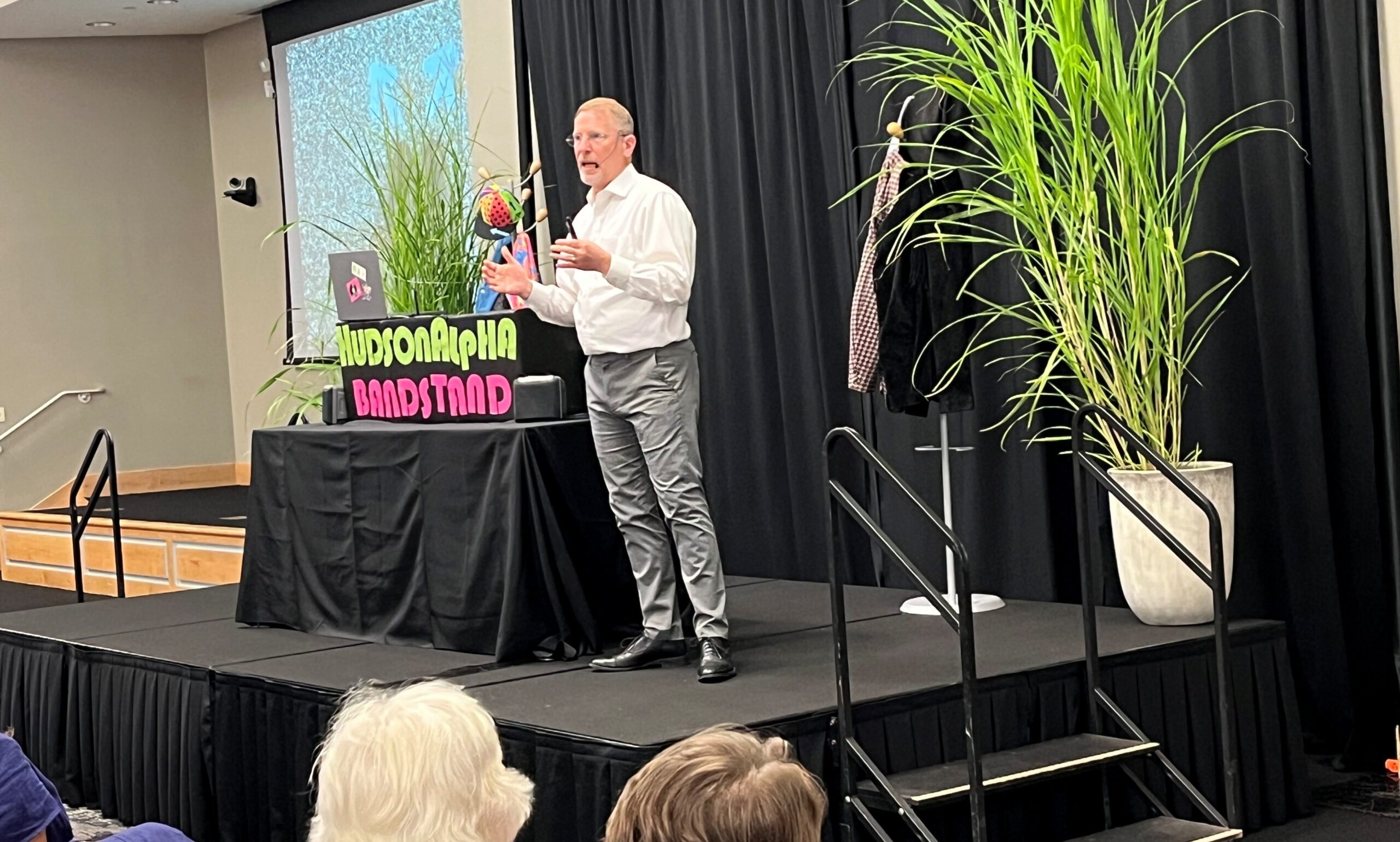The Trump Administration’s change in objectives has resulted in the loss of millions of dollars in federal support for Huntsville’s HudsonAlpha Institute for Biotechnology.
After providing an update on the institute’s research at Jackson Center on Tuesday, Neil Lamb, president of HudsonAlpha, told AL.com that it is still unclear how much of a loss will occur.
According to Lamb, the institute is awaiting word on approximately $48 million in grant funds that the government has halted. He anticipates that the institute will only get a small portion of that.
We submitted several grant applications in 2024, and by January 2025, several of those applications had been approved, Lamb informed those in attendance at the update. However, he emphasized that every administration stamps its own unique priorities for the next four years.
According to him, there are instances when their priorities diverge from the previous one.
According to Lamb, this year’s Trump administration is managing matters differently than previous administration changes.
According to him, they stated these as the top priority and outlined them in an executive order. They stated that if they don’t fit with these priorities, we would remove them from consideration. We will also go back and say anything that hasn’t been committed yet.
As a result, Lamb added, the institute had fewer grants in the works. Additionally, there have been interruptions with the financing agencies, he said. The National Institutes of Health, the National Science Foundation, the U.S. Department of Agriculture, and the U.S. Department of Energy currently provide funding for HudsonAlpha.
He claimed that the number of funding announcements has decreased and that those agencies have been seeing staff reductions.
Therefore, this year we were able to seek grants for a far smaller number of things, Lamb stated.
Lamb stated that he thought the financial shortfall would only last for a short time. According to him, a large portion of the institute’s research, which ranges from initiatives to delay the beginning of Alzheimer’s illness to efforts to shield crops from disease and drought, is in line with government interests.
“We expect to see more of these funding announcements and more funding proposals in the years ahead as the administration aligns their priorities and restarts the mechanism of how science is funded,” Lamb said. We anticipate that such figures will return.
However, Lamb stated that he has discussed with his staff and team that we have some rough seas ahead of us.
“There will be some challenging conditions for us to traverse,” Lamb stated.
HudsonAlpha employs roughly 225 people. On the institute’s 160-acre campus in Cummings Research Park, there are 55 technological businesses employing an additional 900 people.
A D.C. initiative to reduce the indirect rates involved in grant funding is one of his concerns. According to him, the fees support the supporting material that enables you to carry out the real work you have committed to doing with the federal government.
According to Lamb, the annual rate is decided upon through discussions with the federal government. Our indirect rate is not up to us to decide. We provide our financial information.
The indirect rate, according to Lamb, is not a slush fund.
“It’s not sending people on glitzy trips with HudsonAlpha,” he said. I’m not using it to finance pet projects.
According to Lamb, HudsonAlpha has an indirect rate of 45%.
“For groups like us, it is among the lowest,” he remarked. When it comes to the federal funds we receive, we are excellent stewards. There is an effort to attempt to reduce that 15%, but if that is what we have, it would be disastrous for organizations.
According to Lamb, roughly 63% of the institute’s funding comes from the federal government. According to him, the institute began its diversification efforts two or three years ago in preparation for adjustments to federal financing. Federal financing, he added, had been around 70%.
Additional sources of income include state support, private donations, fees for research services, and rent from renters.
Biotechnical research is not the only work being done at HudsonAlpha. The institute features an educational component and collaborates with agricultural businesses.
According to the institute’s most recent report on economic development, HudsonAlpha had an influence of almost $4 billion on Alabama’s economy between 2008 and 2022.
Stories by
Scott Turner
-
Company at Redstone Gateway may play role in setting up Space Command in Huntsville
-
Program management firm reaches milestone with UAH s $59 million engineering building
-
Huntsville Utilities billing changes raising questions among customers
-
Huntsville area home sales fell below 2024 levels in July, but turnaround expected






